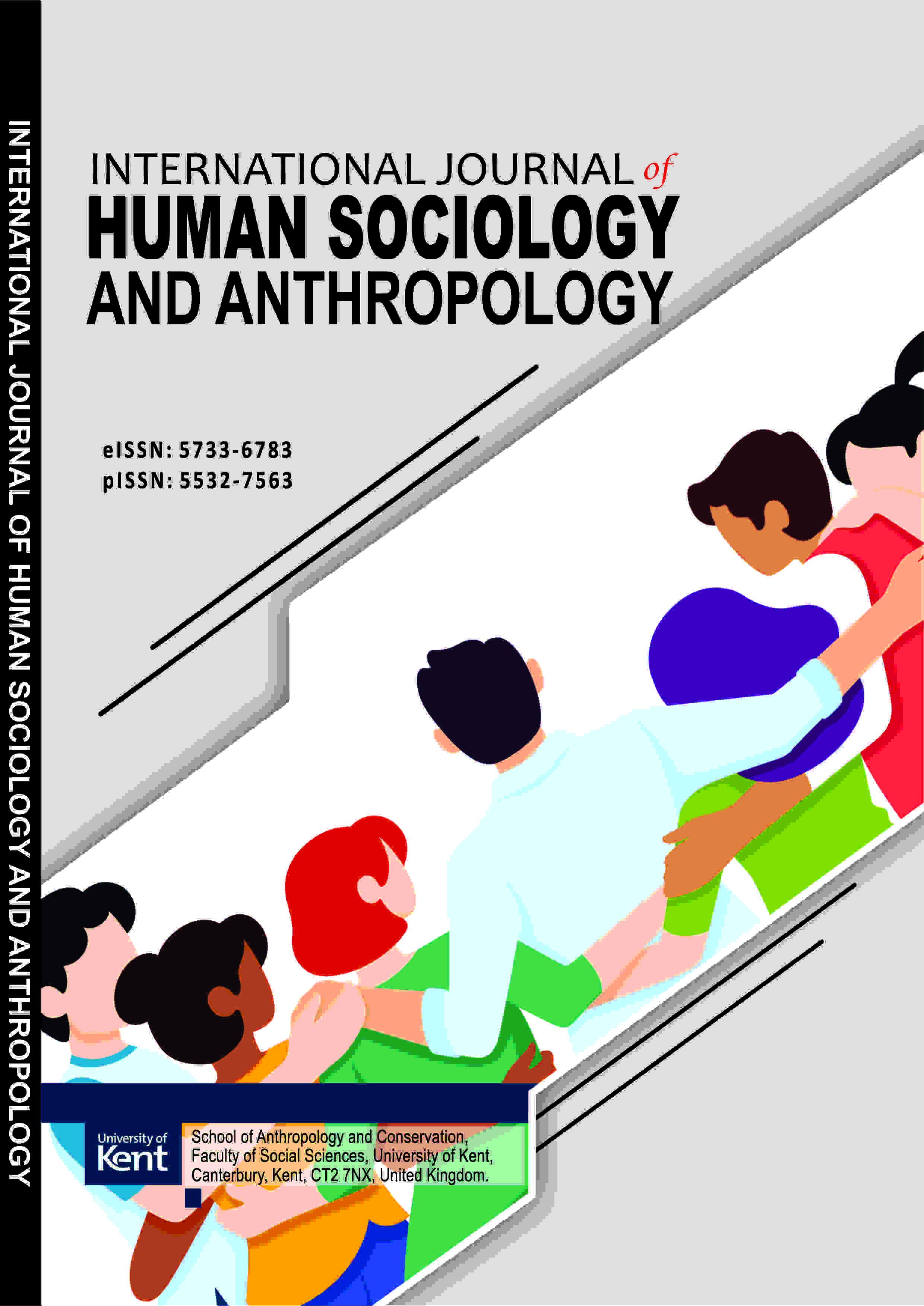INTERNATIONAL JOURNAL FOR HUMAN SOCIOLOGY AND ANTHROPOLOGY (IJHSA)
JOB ROTATION AND EMPLOYEE SKILLS VARIETIES IN DEPOSIT MONEY BANKS IN YENAGOA, BAYELSA STATE, NIGERIA
E-ISSN: 5733-6783
P-ISSN: 5532-7563
DOI: https://iigdpublishers.com/article/653
This study investigates the effect of job rotation on employee job performance in selected commercial banks in Yenagoa, Bayelsa State, Nigeria, focusing on job enlargement, job enrichment, and flexible work arrangements. The study was anchored on the Human Capital theory (HCT) posits that employees' skills, knowledge, and experiences are essential assets for organizational success. Using a descriptive survey design, data were collected from 150 employees via a five-point Likert-scale questionnaire. Data analysis utilized descriptive statistics (means, frequencies, percentages) and inferential statistics (regression analysis) via SPSS software. to examine relationships between job rotation components and employee job performance, providing insights into their impact in the banking sector. Findings reveal that job enrichment has the strongest positive impact (mean range: 4.14– 4.22), enhancing decision-making and efficiency, followed by job enlargement (mean range: 3.80–4.00), which improves multitasking and service quality but shows productivity variability. Flexible work arrangements (mean range: 3.54–3.68) yield moderate benefits, particularly in adaptability, but face coordination challenges. The study concludes that job rotation enhances performance, with enrichment being most effective, though variability necessitates tailored strategies. Recommendations include training for enlargement, mentorship for enrichment, and structured flexibility policies to maximize performance in banking contexts.
Odoh Prince & Ofili Frederick Iwendi
Axtell, C., & Parker, S. K. (2023). Job enlargement and employee self-efficacy: A longitudinal study. Journal of Organizational Behavior, 44(3), 412–428. https://doi.org/10.1002/job.2678
Battisti, M., & Vallanti, G. (2013). Flexible work arrangements and labor market outcomes: Evidence from Italy. Labour Economics, 24, 180–192. https://doi.org/10.1016/j.labeco.2013.08.004
Becker, G. S. (1964). Human capital: A theoretical and empirical analysis, with special reference to education. University of Chicago Press.
Berkery, E., Morley, M. J., Tiernan, S., Purtill, H., & Parry, E. (2017). Flexible work arrangements and organizational performance: A meta-analytic review. Human Resource Management Journal, 27(4), 614–635. https://doi.org/10.1111/1748-8583.12153
Blanchard, K., & Witts, D. (2019). The power of recognition: Building a culture of employee engagement. Berrett-Koehler Publishers.
